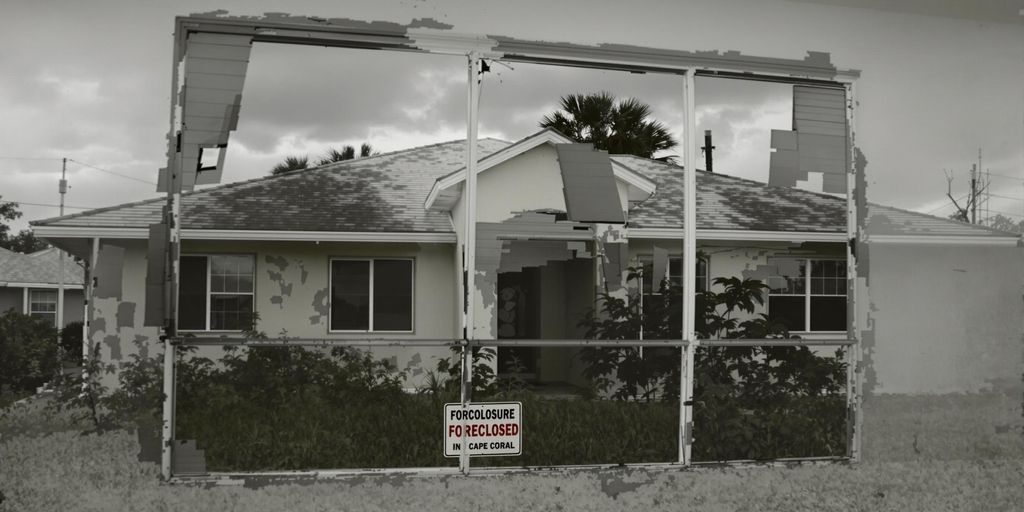Florida’s housing market, particularly in Cape Coral, is experiencing a significant downturn. Once a booming real estate paradise, Cape Coral has seen home prices drop by 11% in the past two years, with a substantial increase in available homes. This shift signals a broader cooling trend across the Sunshine State, driven by affordability issues, rising inventory, and escalating insurance costs.
Cape Coral’s Steep Decline
Cape Coral, once a hotbed for real estate, now faces a stark reality. Data from Cotality (formerly CoreLogic) reveals a 6.5% year-over-year decline in home prices as of April 2025, placing prices back to spring 2022 levels. This makes Cape Coral the "coolest" housing market in the country, with Punta Gorda close behind at -6.2%.
- Rapid Appreciation Reversal: The city’s explosive growth, fueled by an influx of buyers seeking affordability, has made it particularly vulnerable to corrections.
- Affordability Concerns: Despite being more affordable than some major U.S. cities, the surge in prices outpaced local incomes, pricing out many potential buyers.
- Economic Headwinds: Broader economic uncertainties, coupled with local factors like soaring insurance costs and hurricane recovery efforts, have exacerbated the downturn.
Florida’s Broader Market Trends
The downturn in Cape Coral is not an isolated incident but rather indicative of a wider trend across Florida. The state reported negative home price growth of -0.8% in April 2025, with its median sales price dipping below the national median to $390,000. Cotality identified all five U.S. markets with the highest risk of price decline as being in Florida.
Key factors contributing to this statewide cooling include:
- Affordability Breaking Point: High prices combined with rising interest rates have made homeownership increasingly unaffordable for many.
- Increased Inventory: A surge in homes for sale has shifted leverage from sellers to buyers, leading to price reductions.
- Cooling Migration: The rapid pace of migration to Florida has slowed, and the high cost of living, particularly skyrocketing homeowner’s insurance, is deterring some.
- Investor Pullback: Higher interest rates and the prospect of falling prices have made real estate investments less attractive.
High-Risk Markets in Florida
Beyond Cape Coral, several other Florida markets are flagged for significant price decline risk:
| Risk Rank | Market Name |
|---|---|
| 1. | Cape Coral, FL |
| 2. | Lakeland, FL |
| 3. | North Port, FL |
| 4. | St. Petersburg, FL |
| 5. | West Palm Beach, FL |
These markets, which experienced rapid appreciation, are now facing significant headwinds. For instance, North Port saw a 4.3% year-over-year decline in April 2025, while Lakeland and West Palm Beach also show clear downward trends in their price charts.
Implications for Buyers and Sellers
For sellers in these high-risk areas, realistic pricing and negotiation readiness are crucial. Overpricing can lead to longer market times and eventual price reductions. Buyers, conversely, may find increased negotiating power and a wider selection of homes. However, caution is advised, and thorough research into local market conditions and total ownership costs, including insurance, is essential.
While the national forecast suggests a modest increase in home prices, the situation in Florida’s most vulnerable markets underscores the localized nature of real estate. A period of price correction is likely, bringing values closer to sustainable levels.
Sources
- Is Cape Coral the Next Florida Housing Market to Crash?, Norada Real Estate Investments.
- Redirecting…, Naples Daily News.
- 5 Popular Florida Housing Markets Are at High Risk of Price Crash, Norada Real Estate Investments.
- 2 Florida Housing Markets Flagged for a Major Price Decline Risk, Norada Real Estate Investments.
- Florida City Real Estate Market Crashes After Being Super Hot A Few Years Ago — Costs of Climate Change –
CleanTechnica, CleanTechnica.


